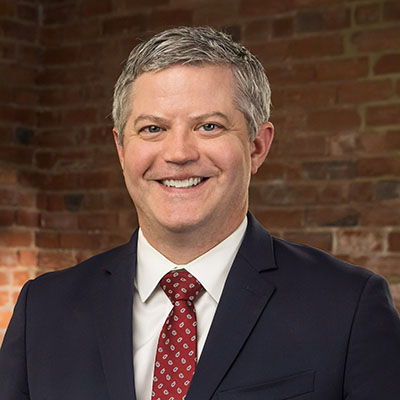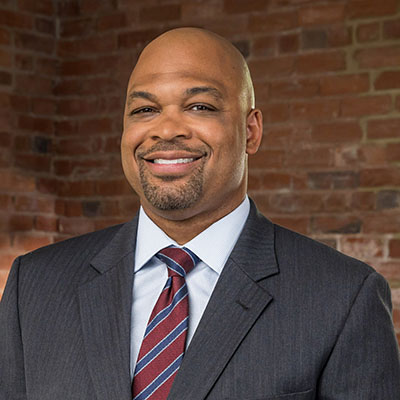If you have been injured in a car crash by a negligent driver or hurt in another type of accident through no fault of your own, Virginia law recognizes that you may be entitled to compensation.

There are various types of damages that can be claimed and recovered in a lawsuit. It could be a bill from an auto body repair shop or from an MRI technician. As most people know, one of the primary items of damage in most cases is the total amount of medical expenses–and these bills can pile up quickly.
What some Virginians do not know is that if you carry health insurance, it is to your advantage to have your bills submitted promptly to your own health insurer, even though the bills will also be claimed as part of your injury case.
In handling personal injury cases on behalf of my clients, I often find that some medical providers do not understand the importance of submitting bills to their patient’s health insurance. Some may even decline to do so when there is a pending auto injury claim.
Fortunately, Virginia law provides a framework for ensuring that a patient’s medical expenses are submitted to their health insurance carrier so that they can be paid promptly, even as the auto injury case is pending.
Why should my own health insurance pay?
I often work with clients who are reluctant to bill medical expenses to their own health insurance carrier. They feel that since the at-fault driver caused the accident and injuries, the bills should be sent to the at fault-driver’s auto insurance.
In Virginia, however, injured claimants benefit from the collateral source rule. In other words, the at-fault driver does not get a discount when a client’s health insurance pays the medical bills, and payments of bills by health insurance can not be admitted as evidence at trial. The injured party may claim the full amount of the medical bills as part of the case, even if it was covered by their own health insurance.
Per Schickling v. Aspinall, 235 Va. 472, 474 (1988), the collateral source rule provides that: “compensation or indemnity received by a tort victim from a source collateral to the tortfeasor may not be applied as a credit against the quantum of damages the tortfeasor owes.”
The reason for the collateral source rule is that the negligent driver should be responsible for the full amount of damage they caused. They shouldn’t avoid responsibility simply because they had the good fortune to injure someone who carried health insurance. By the same token, the injured party should not be prevented from claiming their full damages simply because they had the foresight to protect themselves with a health insurance plan.
Accordingly, I always advise my clients to ensure that all their medical expenses are submitted to their health insurance carrier. This way, they can receive the benefit of their health insurance, while still claiming the full amount of those bills against the at-fault driver’s auto carrier. This applies during settlement negotiations and at the trial.
Will medical providers submit their bills to my health insurer?
Understanding why medical bills from an auto accident should be submitted to health insurance is the easy part. Actually convincing some medical providers to submit their billing to health insurance can be the hard part. Why is this?
Some medical providers, when they learn that their patient is being treated for injuries from a car accident, will prefer not to submit their bills to their patient’s health insurer. Instead, they wait to be paid out of the liability settlement or verdict. The reason for this is that usually the providers’ bills are subject to negotiated rates with the health insurance companies, and they must adjust or “write off” a portion of the bill. However, if the provider waits for reimbursement from the liability recovery, there is no required adjustment and the provider can claim the full amount of the bill and receive more money.
When I begin work on a new case, I always contact all of my client’s medical providers, give them copies of my client’s health insurance information, and request that all bills be submitted to the health insurer. Not only does this ultimately result in the most favorable net recovery to my client, but it allows her medical bills to be paid in a prompt manner, rather than piling up over the course of a contested personal injury case that could take a long time to resolve.
What does Virginia law require?
Is the medical provider required to submit bills to a patient’s health insurer simply because I have made this request? In most cases in Virginia the answer is yes.
Under Virginia Code § 8.01-27.5, so long as a patient provides the necessary health insurance information to the medical provider within 21 days of the applicable submission deadline, in-network health care providers are required to submit the patient’s bills to the health insurer for payment.
This rule applies to a wide variety of health insurance plans, including:
- Coverages issued under the federal ERISA law
- Medicare
- Medicaid
- Certain coverage plans applicable to federal and state employees
The rule does not apply, however, to other types of coverage such as:
- TRICARE
- Accidental death and dismemberment policies
- Disability policies
- Workers’ compensation coverage
Can a medical provider be penalized for not submitting bills to health insurance?
Code Section 8.01-27.5 also includes a robust remedy for an in-network provider’s failure to bill a patient’s health insurer in accordance with the law. If the provider fails to submit a claim, then:
- the patient is not required to pay the bill;
- the provider does not have the benefit of any lien against the recovery in the injury case which it may otherwise be entitled to assert; and
- the provider may not collect the bill from the patient’s medical expense coverage on their own auto policy.
Given this enforcement mechanism, medical providers have a very strong incentive to submit all claims to the patient’s health insurer after the patient puts them on notice. Failure to do so within the prescribed time limit could jeopardize the provider’s ability to be paid at all.
The intersection of liability insurance, health insurance, and no-fault medical expense insurance can be very complicated. Rules are subject to various laws that differ from state to state. At Allen & Allen, part of the service that we provide is confirming that the correct insurance companies cover all incurred medical expenses. This maximizes the net recovery for each client. If you or a loved one has been injured through no fault of your own, contact the compassionate personal injury attorneys at Allen & Allen. For a free case evaluation, call 866-388-1307.







